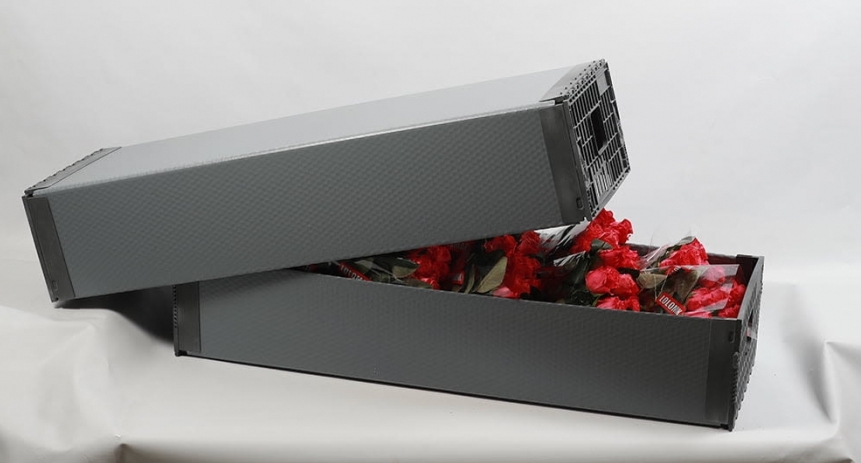Amsterdam Airport Schiphol, Circular Alliance partnership to help Kenyan growers with sustainable packaging solutions
Amsterdam Airport Schiphol and Circular Alliance have found a better way to ship all kinds of cargo in a sustainable manner.

August 18, 2020: As coronavirus pandemic is making cost-cutting a top priority, Amsterdam Airport Schiphol and Circular Alliance have found a better way to ship all kinds of cargo in a sustainable manner.
The Alliance sees an opportunity to help Kenya go greener. “Plastic is a big problem in Kenya,” Roos Bakker, director of business development for cargo explained. “So the Alliance has established its manufacturing process there, recycling local plastic to make the boxes. We have a great solution, but growers, handlers and airlines must embrace it,’ she said.
In the past, it has often proven challenging to get an entire chain to adopt a new way of working. Plans to visit growers in Kenya to promote the new boxes have been put on hold because of the coronavirus, but Bakker says she is eager to pick up the initiative again when it is possible.
More than 35 percent of the import cargo at Amsterdam Airport Schiphol consists of flowers. By standardising box sizes and making them from recycled plastics, the Alliance has set an ambitious goal: reduce product importers’ carbon footprint by 25 percent, and also increase their profitability by 25 percent at the same time. Simply put: “standard boxes create more space in each freighter, which means fewer freighters have to fly,” said Bakker. The boxes and pallets last for five to seven years, and can then be recycled to create new boxes and pallets for another five years of usage, thereby reducing waste.
 Amsterdam Airport Schiphol joins Circular Alliance
Amsterdam Airport Schiphol joins Circular Alliance
In addition to coming in all shapes and sizes, flowers maintain their freshness in specific conditions. When they are shipped overseas, this can mean missed opportunities. “Because of the different shapes and sizes of flower boxes, freight planes can only fill to about half of their full capacity,” she noted. “This means double the flights than necessary to ship cargo. In addition, the boxes are prone to condensation, and are only used once.”
Within just a few months, the Alliance has developed a prototype flower box that is strong, durable and resistant to condensation. The flowers are more protected, and less likely to wilt, thus improving the quality of the final product. The boxes are stackable to better utilise available cargo space.
Adopting the new boxes is not limited to the flower industry alone. The new designs will truly be successful when other sectors – like the fashion industry or product manufacturers in China – recognise the benefits of the boxes and adopt them as well. Large-scale use of sustainable packaging will be a measure of success.
Since sustainability is a top priority at Schiphol, it joined the Alliance when it was founded earlier this year.
Recycled plastic pallets also offer benefits over their wooden counterparts. They are stronger, last longer, and do not absorb water. “Wet wooden pallets add unnecessary weight to the total freight,” she explained, “So using plastic ones also means more cargo can fit on the plane. And they are reusable for years, so the reduction in waste is very significant.”
The Alliance’s production lab in Munich is ready to begin prototyping boxes and pallets in any shape, size or strength.


